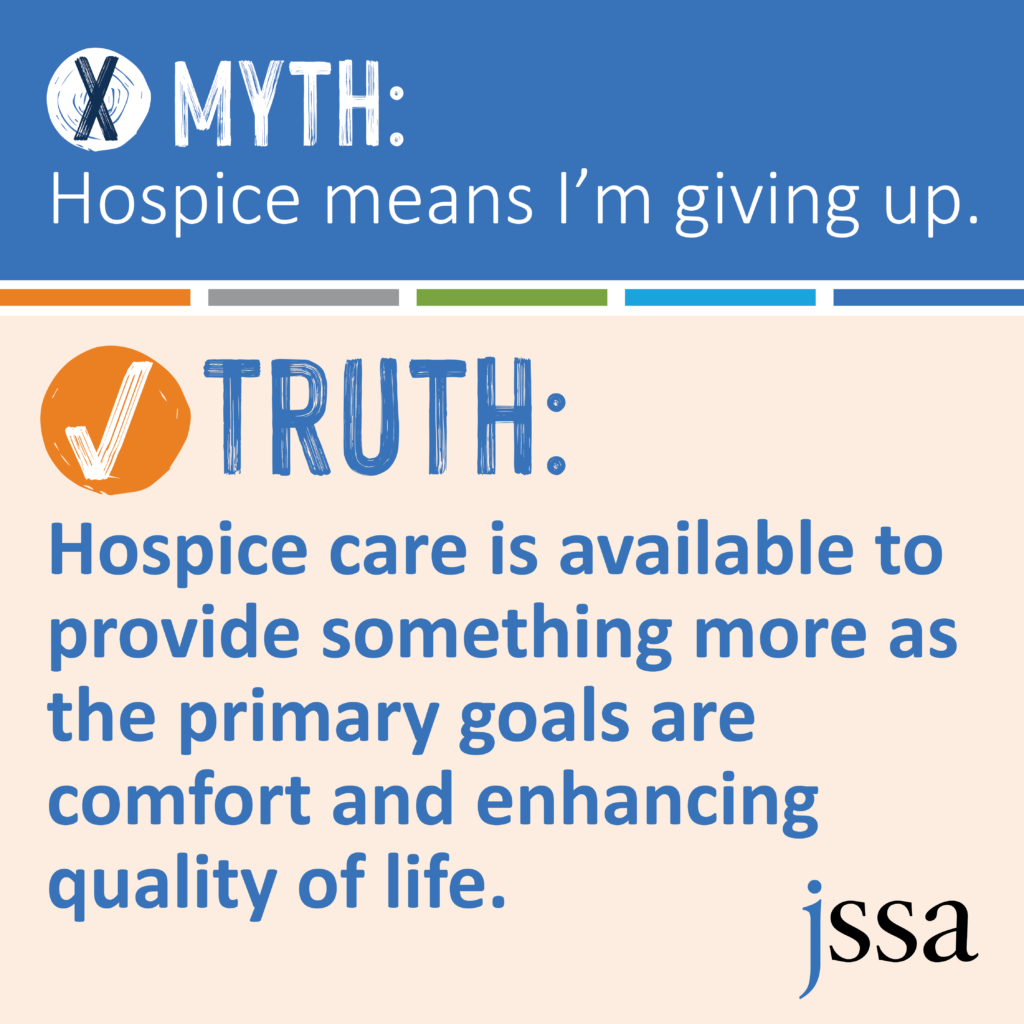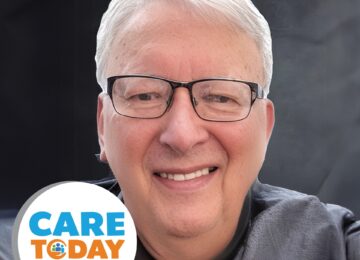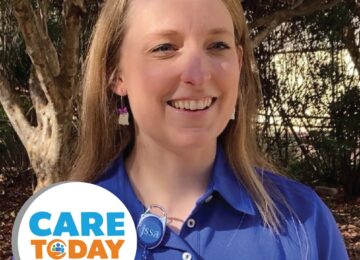The Truth About Hospice

The Benefits of Hospice Care at End-of-Life
Although hospice care is a benefit covered by Medicare and other major insurers, not everyone enrolled in a healthcare plan enters hospice as they navigate a life-limiting illness.
In fact, only about half of those 65 and older who died in 2023in the counties surrounding Washington, D.C. were enrolled in hospice care at the end of their lives. Medicare claims data show that percentage has been consistent since 2020 for the County.
As a leading hospice provider in Montgomery County, Md, we know patients resist hospice care for many reasons. For some, there needs to be more understanding of what hospice is and the benefits of comprehensive end-of-life care. Others may not know hospice is an option available to them as we’ve seen a pervasive reluctance of physicians to have tough conversations with patients about life-limiting prospects. And for others, they are swayed by family members encouraging them to “fight on” with the belief that seeking hospice is admitting defeat.
JSSA considers quality hospice care a right for all – an essential service that provides comfort, respect, and dignity at the end-of-life. We’ve provided countering truths to common myths about hospice below. If you have further questions or are wondering if calling hospice is right for you or a loved one, please call us at 240-800-JSSA.
Myth: Hospice means I’m giving up.
Truth: Hospice care is available to provide something more as the primary goals are comfort and enhancing quality of life.
Myth: Hospice is for cancer patients.
Truth: Less than a quarter of hospice patients have cancer. Anyone living with a life-limiting condition, and no longer seeking curative treatment, can benefit from hospice care.
Myth: Hospice is where patients go to die.
Truth: Hospice ensures you or a loved one can live the rest of their days with dignity and comfort with the people that matter most in your life. Most hospice patients choose to receive care at home, rather than a dedicated facility. JSSA meets hospice patients where they choose to live.
Myth: Entering hospice means death is imminent.
Truth: Hospice care neither hastens death nor prolongs life, however, hospice patients often live longer than individuals with the same illness who don’t choose hospice.
Myth: I must give up my doctor when entering hospice.
Truth: Attending physicians are encouraged to remain involved and work with hospice teams to determine the patient’s plan of care.
Myth: Hospice requires DNR
Truth: Patients are not required to have a DNR to enter hospice. JSSA’s interdisciplinary team provides valuable information to help patients, and their families, make informed decisions at the end-of-life.
Myth: Once in hospice, there’s no going back.
Truth: Patients can leave hospice care at any time, for any reason. Many of JSSA’s hospice clients graduate to our Transitions program for further care.
Myth: Hospice is only six months
Truth: If a patient continues to be eligible for hospice care, a physician may recertify the patient after six months.
Myth: Hospice medications hasten death.
Truth: Hospice staff closely monitor patients before initiating or increasing dosages of medications administered to help achieve comfort to ensure patient safety.
Myth: Doctors Need to Raise Subject of Hospice
Truth: Physicians determine if a patient is eligible for hospice, but a patient or caregiver can initiate the discussion.
JSSA’s hospice team is standing by, ready to answer any questions you have and help you navigate this most difficult moment. Call 240-800-JSSA today.



